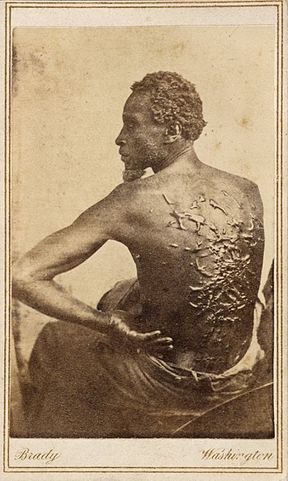Stop Sanitizing the History of American Slavery
 This time of the year we celebrate the “freedoms” Americans attained after revolting against the British and gaining “our” independence. However, the recent remake of the classic TV miniseries Roots reminds us that while the Founding Fathers may have been fighting for the nation’s freedoms, those same freedoms didn’t extend to anyone who wasn’t a privileged, white male at the time.
This time of the year we celebrate the “freedoms” Americans attained after revolting against the British and gaining “our” independence. However, the recent remake of the classic TV miniseries Roots reminds us that while the Founding Fathers may have been fighting for the nation’s freedoms, those same freedoms didn’t extend to anyone who wasn’t a privileged, white male at the time.
I had a conversation with an older family member about a month ago about the new version of Roots. The family member said there wasn’t a need to remake the miniseries because “it will make black people get angry and uncomfortable.”
Well, yeah, black people should be angry and uncomfortable about slavery.
Then there were other people, like Snoop Dogg, who are tired of only seeing movies about slavery. He is not entirely wrong. Yes, it would be great to see more substantive films and TV shows that explore the full spectrum of the African-American experience, but there is still a need to have proper media representations of slavery because you can’t move forward as a society without knowing your past and where you come from. Otherwise, your history gets lost and diluted.
I say this because when you don’t remind people about the truth of slavery, there will be others who will take advantage of the void and lack of discussion to create revisionist history.
And there is a lot of revisionist history about slavery going on right now.
It is bad enough that American schools barely teach about the history of people of color, or even use fictional books with protagonists of color. But now this white supremacy in our schools have been taken to a whole, new level by way of textbooks teaching students that black slaves were migrant workers as if they came to America on their own free will.
This recent article also reminded me of other slavery revisionist theories, such as:
- Racism didn’t influence slavery;
- House slaves had it better than field slaves;
- Slave owners took care of their slaves out of goodwill, and not for their own economic interests;
- Slaves that were “loyal” had better treatment;
If you watched the original version or the remake of Roots, or know some real history, you will be aware that all the above are false.
My biggest grievance comes when the revisionist discussion of sexual violence during slavery comes up. A few months ago, I watched a TV program where the panelists were discussing the alleged relationship between Thomas Jefferson and his slave, Sally Hemings. There was this one guy there who was desperately trying to make the case that Jefferson and Hemings had a “wonderful love affair.”
Let me say this upfront: all sexual relations between slaves and their owners are always considered rape because of the unequal power structure and lack of consent. To even say this today is actually controversial to some people, which further exemplifies how sanitized slavery has become in American history.
Although there have been many movies and books that have dramatized their “love story,” we don’t really know the true nature of the Jefferson/Hemings relationship. What we do know, however, is that Hemings was at least 14 years old when Jefferson, who was in his mid-forties at the time, began having sex with her. There is no way a 14-year-old, black, female slave was in the position to consent to a sexual relationship in 1787 with her white male slave owner, who was old enough to be her father. By today’s standards, this Founding Father would not only be considered a racist slave owner, but also a child molester.
For argument’s sake, even if in the highly unlikely case Hemings and Jefferson had a consensual relationship, I am pretty sure Hemings could never say “not tonight, honey.” During slavery, many female slaves became the master’s girlfriend or bed wenches, as they were not free to make that choice. It is even more ridiculous when historians refer to Hemings as a “mistress,” which again implies that she chose by her own free will to have a consensual relationship with Jefferson.
Also, sexual violence was so pervasive and complex among female slaves during slavery that sexual abuse against male slaves often falls to the wayside. Yes, male slaves were also raped, or what is called “breaking the buck.” It did happen, and you can read more about it here, as well as about other sexual perversions during slavery.
My point here is that we still need to have honest conversations about this dark point in American history. Slavery is America’s original sin, and Americans of all colors should preserve its real history not only for future generations but to also preserve respect for our ancestors.